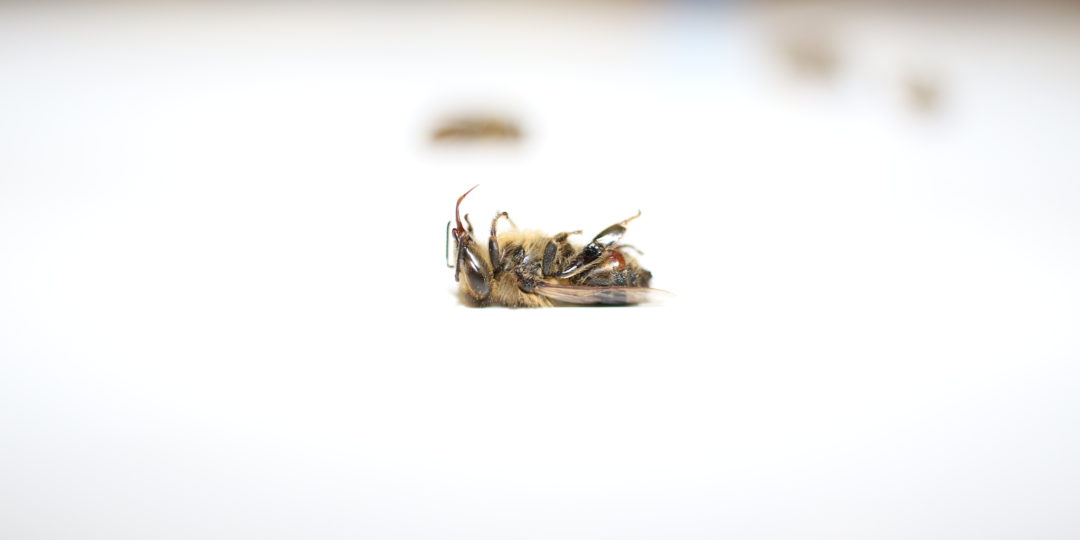Genetic Tradeoffs: Some Bees Can Have it All
by Aaron Weber

Recently a lot of attention has been given to breeding Varroa mite resistant honey bees. There has been concern, however, that this good-intentioned method could come with a downside. One main way honey bee workers deal with parasites is by socially grooming one-another. Researchers hope that we can create healthier hives by selectively breeding bees with a tendency to perform these actions more often. However, others have expressed concern that breeding of this sort may come with genetic trade-offs that could result in weakened immune systems.
A new research paper titled “No Genetic Tradeoffs between Hygienic Behavior and Individual Innate Immunity in the Honey Bee, Apis Mellifera” demonstrated that such trade-offs are not apparent in honey bees.
Trade-offs
A genetic trade-off happens when a certain beneficial trait (gene) in an organism comes with an associated downside. Imagine an animal whose genetics cause it to grow to a large size. It will probably fare better against predators, but will also require more food. This is a genetic trade-off. An advantage (size) is accompanied by a disadvantage (higher energy costs). Across the entire animal kingdom there are trade-offs being made, and it is clear that no one organism is specialized in every area.
In the case of honey bees, scientists worry that breeding hygienic workers could lead to weakened individual immune systems of workers in the hygienic colonies. Hygienic behavior in bees is an inherited trait, which means that it is caused by a gene. Therefore, this potential tradeoff could be due to genetics.
Innate Immunity
A honey bee’s immune system is important. Individual immunity in honey bees is vital for fighting off infection and disease ranging from Nosema spp. to tracheal mites. When a bee’s immune system detects harmful invaders, it releases a barrage of destructive chemicals into the hemolymph which is comparable to blood in humans. However, unlike humans, the honey bee immune system does not remember previous invaders. Because of this, the chemicals released by the bee tend to be harsher and more damaging to the bee. This type of response is called an innate immune response.
As with humans, the ability to perform other tasks is impaired by illness in bees. Researchers have observed that when a worker bee is fighting off an infection, she will be less effective at vital tasks such as finding her way to nectar-rich flowers. Because of this, it’s much more efficient for bees to exercise good hygiene than deal with illness reactively. Nevertheless, the innate immune system is still an important last line of defense; a dead bee is far worse off than a sick bee.
The Study
The research paper mentioned above considered a possible genetic trade-off between hygienic behavior and innate immune health in two ways. First, the researchers analyzed hundreds of individual workers to show that innate immunity in honey bees is not strongly tied to their genetics. In other words, the strength of a parent’s immune system says little about what the offspring’s immune system will be like. If innate immunity isn’t genetic, then selecting for bees whose genetics make them more hygienic is unlikely to impact their immune system.
The researchers also compared the strength of workers’ individual immune systems to the strength of their grooming behaviors. Bees that were better at removing Varroa mites and dead brood from hives did not appear to have innate immune systems that were any different from their less hygienic counterparts. Ultimately, these results suggest that there is no trade-off between hygiene and innate immunity. Therefore, selectively breeding hygienic honey bee colonies is unlikely to cause their health to decline in other areas. Ultimately bees are under threat from a range of sources. These findings are good news those that prefer a chemical-free approach to combating Varroa mites and other harmful hive invaders.[/vc_column_text]
Aaron Weber is a researcher with the Urban Beekeeping Laboratory and Bee Sanctuary. He helps conduct experiments as well engage in fundraising efforts. He graduated from Northeastern University with a B.S. in Environmental Science.